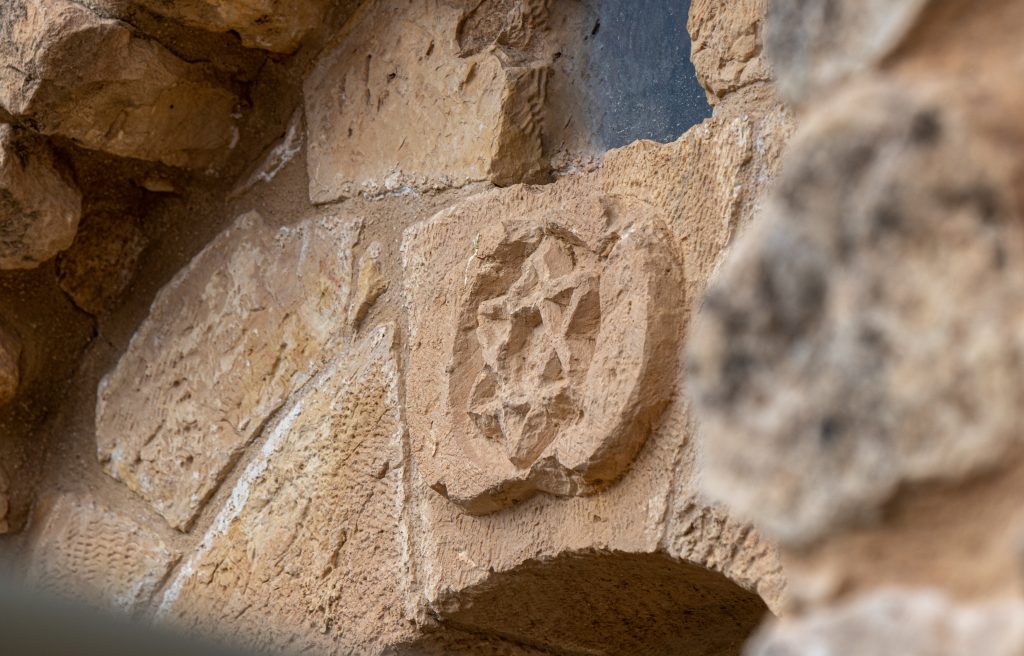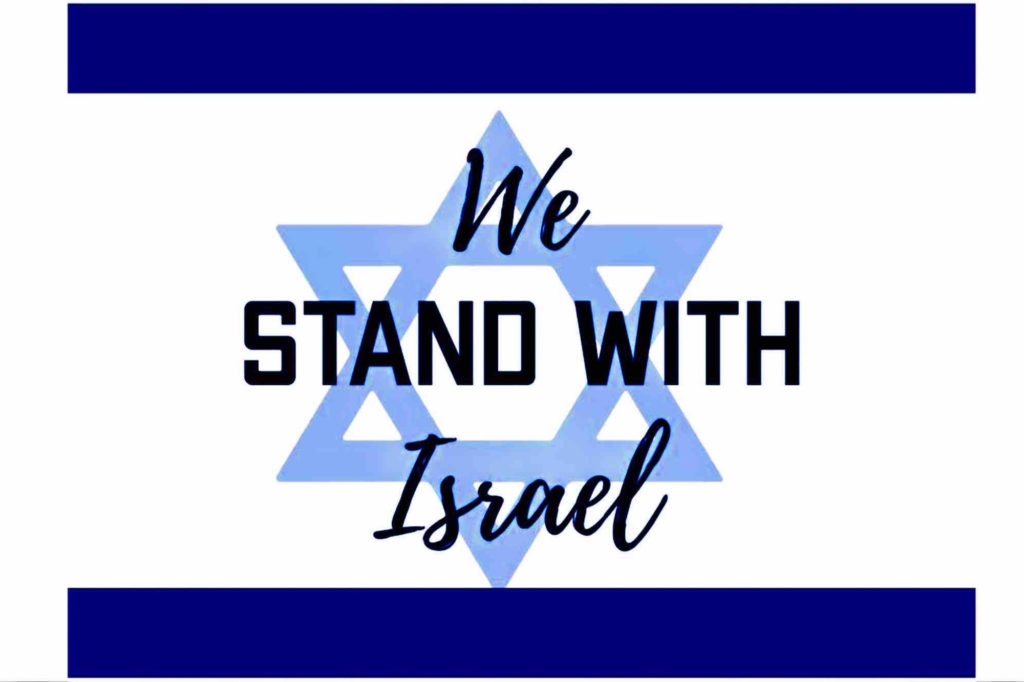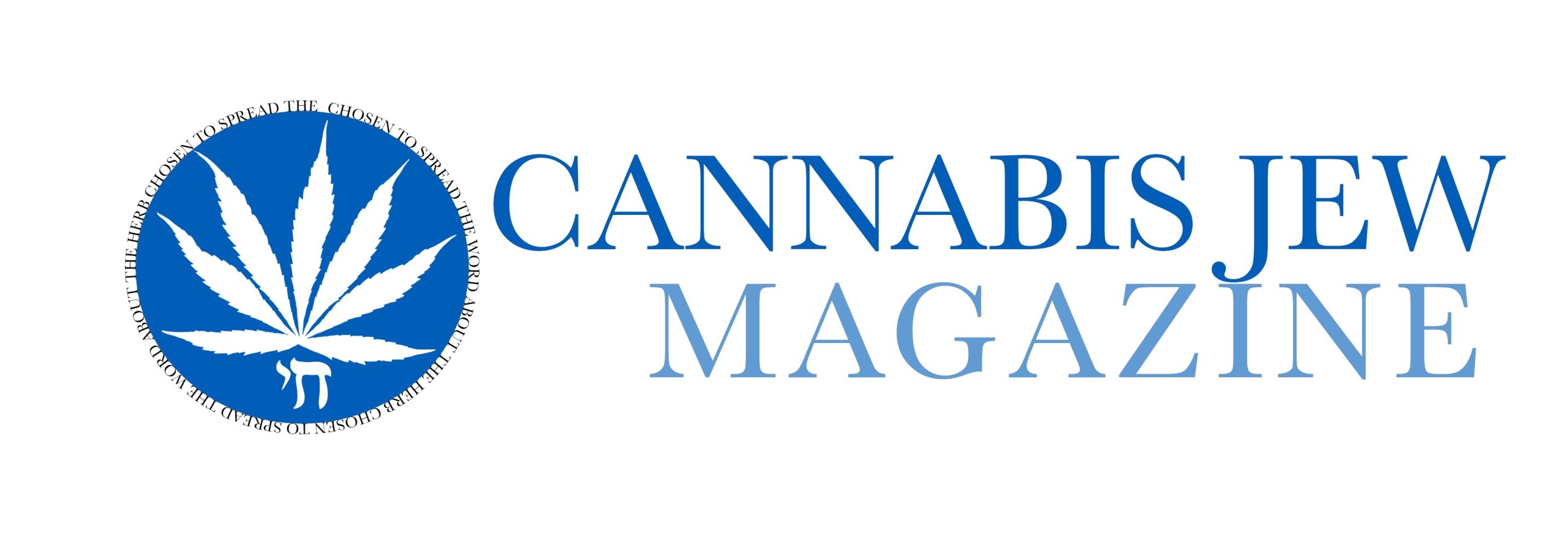During this open season of antisemitism when old resentments have mixed with modern revisionism to create a potent new version of anti-Jewish hatred circulated in the media and sanctified by academia, it feels like allies are hard to find.
This can make all the gaslighting in the media and the erasure of Hamas’ genocidal attack even harder to take, especially when our holocaustal wounds can make it feel as though the world is readying itself for a Final, “Final Solution.”
When I cut my anxiety about everyone becoming a Nazi by breathing deeply and inhaling some cannabis, I realize that it’s most likely confusing for non-Jews to know how to be Jewish allies when we are so often perceived as “Just White,” neurotic, and kind of annoying. In other words, I imagine that even if some gentiles feel us and would like to offer their support, it’s probably a bit daunting to know how to do this with a group that doesn’t seem all that well-defined or understood—despite our ancient roots and (rather impressive) cultural achievements.

So this Editor’s Spiel is dedicated to Jewish allies (closeted or otherwise) who are looking for a column just like this to strengthen their solidarity and learn a few kosher ways to show their support for the Jewish community that will not be controversial among their Jewish friends.
I’ve organized the list in terms of experiences we are having or feelings we can’t shake, followed by a suggestion for how an ally can be sensitive to them, help us cope and feel supported:
Everyone has forgotten about the Holocaust.
This is not a literal statement, but an observation that follows from the apparent difficulty of empathy for Jewish suffering, and the ease with which gentiles question the right of Israel to exist. Our sense is that if non-Jews remembered how recently the great European nations toasted to their collaboration on the “Final Solution” to the “Jewish Problem,” then they could better grasp that the life and future of the Jewish people depend on Eretz Israel.
It’s hard to understand why anyone wants us to be the only people without a nation, unless they haven’t given much thought to Jewish history or don’t really care if we survive—as a people—at all.
Many Jews inherit our fair share of generational trauma, and the Holocaust is not something we can forget: it is the source of many of our fears and anxieties. So this may sound strange, but one way to support the Jewish community is to try to think about the Holocaust in a different way, from the perspective of generational trauma and what it means to inherit this history that we cannot imagine or master.
This can help you feel the “sting” or harm of so many antisemitic statements that seem designed to trigger our holocaustal wounds, such as the accusation that Israel is committing “genocide” by defending itself from the perpetrators of mass murder who want All Jews dead and are still holding Jewish hostages. If you share your disgust about this accusation with your Jewish friends, “given how recently Jews suffered from the Holocaust,” they will feel seen and supported.
 It’s not business as usual.
It’s not business as usual.
If you’re perplexed about why Jews keep posting about October 07—especially Jews in Canada or the US—it’s because the war isn’t over, we are terrified about the fate of the hostages still held by Hamas and we are in mourning, coping with anguish and fear every day. Under these circumstances, some of your Jewish friends or colleagues may be a little cranky, or say something that you consider “inappropriate.”
The best way you can be an ally to your Jewish friends is to practice empathy (it’s like a muscle that needs to be exercised) and realize that we are angry because we are in so much pain and feel alone against the world. If you can feel this, and check in with your Jewish friends: “I know it’s been a rough week, you holding up?,” they will feel seen and supported.
 Israel is being attacked every day.
Israel is being attacked every day.
When you read about the war in the North American press, it’s easy to forget that Hezbollah has been firing rockets at Israel since 07 October, Hamas continues to kill hostages and hundreds of thousands of Israelis remain displaced from their homes. Just this week alone, Hezbollah sent a barrage of 30 rockets into northern Israel, and we learned that 31 additional hostages are now dead.
We cannot go back to “normal” when Israel is under attack. We cannot feel “normal” until the remaining hostages are released and home with their families. It often feels as though we live in a parallel reality and, from our perspective, it feels obscene for the world to act as though Jews are not being attacked and tortured and ignore the fact that we are –once again—defending the right to live in our ancestral homeland and defending the right of Jews to exist at all.
If you remember that Israel is under attack and we are terrified about the fate of the hostages tortured by Hamas every day, then I imagine you can feel how much it means to us when someone who is not Jewish expresses their concern and sympathy for our loss. It is confusing and debilitating to be characterized as perpetrators when Israel is under attack, and we are pleading for all of the hostages to come home—Now.
 We love and respect life.
We love and respect life.
For many Jews the constant barrage of antisemitic statements, memes, and jokes are psychologically painful because of how they distort the nature and meaning of being Jewish. For this reason, expressions of Jewish pride are also a form of resistance against this cultural gaslighting.
In Jewish ethics, the highest value is the respect and concern for life. We even express this moral priority in our toast: l’chaim, “to life.” Thus it is psychologically debilitating to be cast as violent, war-mongering people by those who do not know anything about the history of Israel or the Jewish people, and instead accept the revisionist versions from whatever corner of the internet they happen to occupy.
For this reason, another way you can support Jews is by learning a little about our culture or religion and then expressing your newfound knowledge to your Jewish friends, as in: “What a rough week, have a good shabbos.”
If you want to show more than moral support, you can also donate to one of the initiatives sponsored by Israel Gives to help Israelis cope with and recover from the war. CJM is co-sponsoring one of these initiatives to provide support for Israelis who lived in the Nir Oz community that lost nearly a quarter of their members to murder and kidnapping. You can donate to the Nir Oz Community here, and it’s even kosher to let your Jewish friends know that you did, which will help them feel seen and supported.







